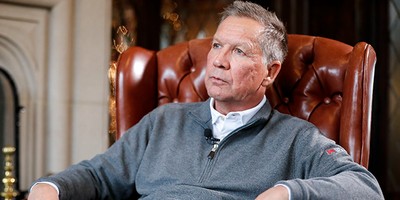The Reason Foundation estimates that States of the Union are facing a $9 billion a year shortfall to deal with infrastructure, mainly roads. Governors aren't sure what to do about the problem. The public is intolerant when it comes to raising taxes. From the public's point of view, tolls are taxes, so raising tolls is also politically radioactive. As a consequence more and more Governors are turning to so-called private/public investments. The latest to turn to this "solution" is Pennsylvania's Governor Edward G. (Ed) Rendell. At least he has been popular. But what of his announcement that the Albertis Group of Spain was the winner of major competition to lease portions of the Pennsylvania Turnpike? The multiyear lease could bring in as much as $18 billion, depending on how much of the Turnpike is leased.
It would appear that the public does not like private interests' leasing infrastructure. When the leasing agent is from a foreign country the opposition goes off the charts. When the National Surface Transportation Policy and Revenue Study Commission, upon which I served, took up the question of private/public investments the recommendation only passed when Commissioners agreed that no foreign government or private consortium should be the leasing agent. In other words, if states are to make a deal let it be with fellow Americans and not a foreign country.
The public, having paid for the building of toll roads, feels as if they own these facilities and they just intensely dislike foreign entities owning them. One libertarian economist who favors such partnerships said when asked about public reaction, "Well, if it gets to be a problem we can always nationalize the facility. I suppose so but that is highly unlikely to happen, especially when the United States would then be nationalizing facilities belonging to an ally. Or if an ally becomes an enemy, then what? Do we want enemies holding key properties in this country?
The problem is not simple. Revenues from the highway trust fund are declining and will be out of money in only a few years. And as people drive less (this last Memorial Day we saw the first decline in people going on trips since 9/11) tolls produce less revenue. If a private/public partnership owns the toll road it can raise tolls any time without public hearings and without being subject to the political pressure that any current plan to raise tolls would have.
Recommended
Indiana Governor Mitch Daniels got in hot water for leasing portions of the Indiana Turnpike to a foreign entity. His opponent this November is making that lease an issue. Only Chicago Mayor Richard Daley, who leased the Chicago Skyway for $1.8 billion to a consortium consisting of Macquarie and Cintra from Spain, may have survived politically. Governor Rendell claims that his $12.8 billion deal with bring in 13% more revenue than the State is able to collect. He said without the tolls that the private/public partnership will bring in the toll revenue from State ownership would be only $450 million annually compared with $1.7 billion needed for infrastructure expenditures over the next ten years. It now costs $22.75 to cross Pennsylvania. Next year there will be a 25% increase in tolls. And inflation increases will be permitted at 2.5% per year. At the end of a 75-year lease, Dennis Enright, a principal of New Jersey-based NW Financial Group, told THE WALL STREET JOURNAL, it would like cost $176 to cross the State. That is exactly what citizens of Pennsylvania fear, although very few current drivers would be behind the wheel at the end of the lease.
My father always said when a deal appears too good to be true it probably is. Foreign money for infrastructure looks tempting but it may not be worth the political grief to those who propose it and put it through.
























Join the conversation as a VIP Member